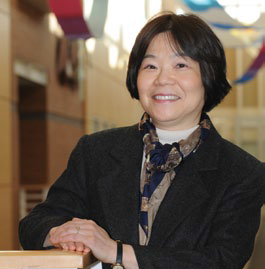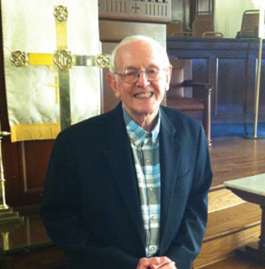What are the biggest challenges facing older people in Arkansas?

by Dr. Jeanne Wei, M.D., Ph.D.
Donald W. Reynolds Institute on Aging
University of Arkansas for Medical Sciences
Senior Arkansans face a daunting set of challenges that contribute to disparities in health.
Healthcare outcome disparities are directly related to the differences in access to, and availability of, health facilities and services, primarily as a result of geographical location, socioeconomic status, education, language, race, gender and/or age.
These disparities clearly have had a negative impact on the aging population in the state of Arkansas. Arkansas is ranked 50th in the U.S. in cardiovascular outcome disparities. Among the 50 states, Arkansas ranks 47th in overall senior health, 50th in food insecurity, 46th in physical activity and 41st in poverty among seniors.
One key factor in these differences is the rural nature of the state and the distance between where seniors live and the nearest hospital or physician’s office. Telemedicine has begun to help alleviate this problem and continues to demonstrate potential for narrowing the gap.
Addressing all these multiple problems simultaneously, comprehensively and with sufficient dedicated resources, is essential to solving each one and to ensuring that seniors throughout Arkansas are healthy and are receiving equal access to, and benefitting from, healthcare.
A reduction in the number of seniors living at or below the poverty line would mean more seniors eating better, healthier and not succumbing to malnutrition or even hunger. It also can mean access to affordable transportation to a senior activity center or other fitness facility where they can participate in activities to improve their health. Similarly, good nutrition would go hand in hand with taking advantage of these activity and exercise facilities.
Solving only one of these problems might not significantly improve things soon enough for senior Arkansans, but a solution that knits all of them together will likely succeed where narrower initiatives have previously failed. We all need to collaborate together to help our loved ones, our neighbors and eventually ourselves.

By Rev. Herschel McClurkin,
Retired United Methodist pastor
Alma, AR
“I miss my Sunday School class and church when I can’t go. My relationship with God is important,” say some.
“To get myself to the aquatic aerobatics two times a week helps my arthritis, but it gets tiresome. To do the exercises and walking suggested by the rehab folks following surgery and hip replacement is not easy.”
A lady, 91, says, “If we don’t keep ourselves in touch with others and have fellowship, we go down fast! My brother offered to take our sister to church after her husband died. She refused to get out of her chair. She didn’t last long!”
Some older people say, “Keeping active and staying busy is number one, and it’s difficult with lack of transportation.” Some say transportation is their main challenge.
Others have challenges for lack of food, poor nutrition, someone to check on them, citizenship, energy, medicine, finding a doctor, waiting months for an appointment, keeping up with Medicare and Medicaid changes, finding affordable home care, facing homelessness, learning about free clinics and wondering what our government is going to do next.
What is common to all? The little three-year-old, the 20-year-old college athlete and adults are all getting older! Some of us want to and some of us don’t want to get older.
Challenges for aging people abound. More are beckoning to be aided. But people who are willing to help are always a God-given blessing.
